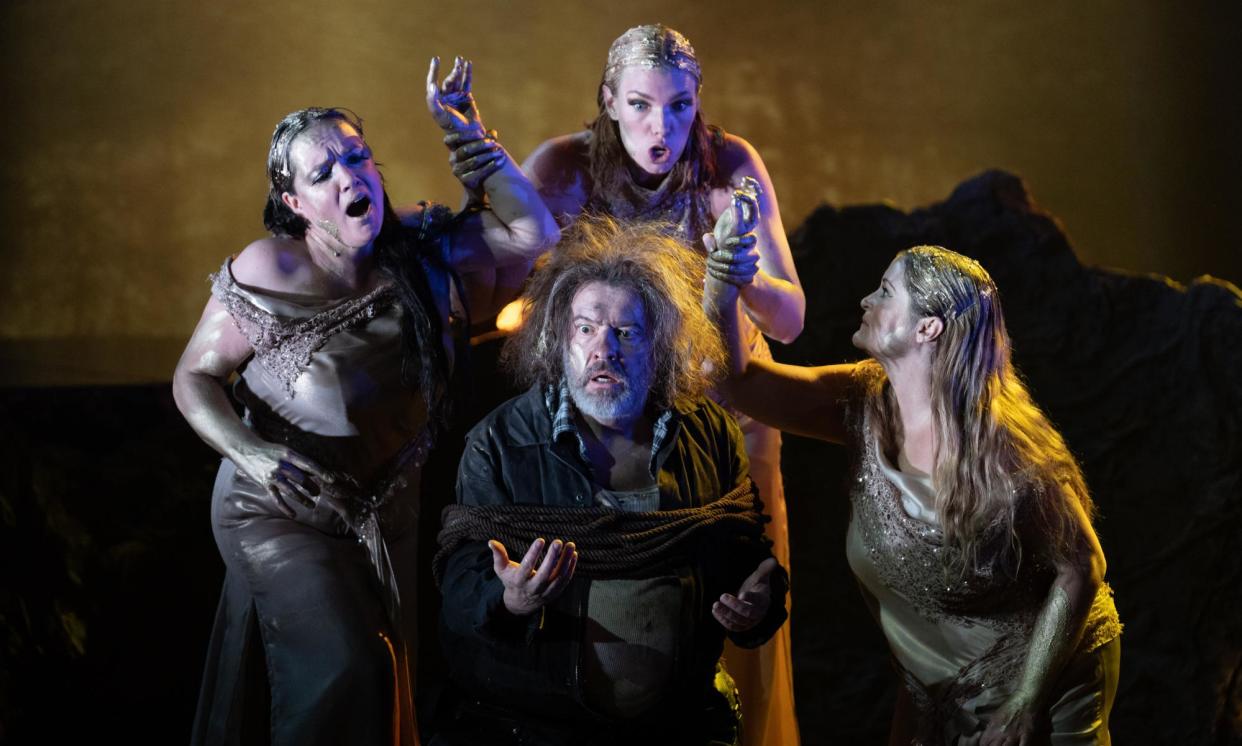The week in classical: Das Rheingold/Die Walküre; Paul Wee; Köln Concert – review

A full staging of Wagner’s Ring cycle in a converted barn in rural Gloucestershire once seemed eccentric. You may say it still is. Now in its 33rd season, Longborough festival opera, which began modestly in 1991, has become a centre of musical seriousness. Its popular founders, Lizzie and Martin Graham, who happen to be Wagner fans but open-mindedly – or sensibly – allow other composers to feature, have passed the artistic leadership to their opera director daughter, Polly Graham. With a 500-seat theatre, a dedication to environmental sustainability and an expanding programme of education and participation, the festival is a mainstay of the summer opera season. Its success is a result of artistic ambition and achievement, helped by having the Wagner specialist Anthony Negus as music director.
Last week, the festival embarked on its second complete Ring cycle (the first was in 2013), built up over five years and nearly thwarted by the pandemic. Negus’s gift, as well as training singers to perform Wagner, is to judge the pacing of this music, moving it forward but never driving it too hard. Directed by Amy Lane, the stagings make clever use of limited technical facilities and thrift, with imaginative but simple stage designs by Rhiannon Newman Brown and lighting by Charlie Morgan Jones. A video backdrop by Tim Baxter conjures painterly moonscapes, forests, rocky landscapes and the fiery furnace of Nibelheim.
The first two operas of the tetralogy, Das Rheingold, from 2019 and Die Walküre, new this year, showed how the production has progressed. Storytelling is to the fore. If Rheingold, with a cast impressively led by Paul Carey Jones (Wotan) and Mark Stone (Alberich), occasionally felt cramped on the small stage, Die Walküre had urgent clarity. Rarely has the Act II exchange between the Valkyrie, Brünnhilde (the powerful and unflappable Lee Bisset) and the Wälsung twins, Siegmund (Mark Le Brocq, ardent and tender) and Sieglinde (Emma Bell, fearless in vocal strength), felt so intense. The festival orchestra, not large but assured, was especially effective here, particularly the violas, whose quiet growls colour the mood in this act.
How Wee mastered one of the most difficult works in the repertoire while pursuing a legal career is beyond comprehension
Wotan’s huge monologue and “farewell” (to his daughter Brünnhilde, forced to sleep on a flame-encircled rock until a hero rescues her) were remarkable in steadiness and expression. The eight Valkyries, together with Fricka (Madeleine Shaw) and Hunding (Julian Close), completed an excellent cast. Special praise for the young bass Connor Baiano, a recent graduate of the Royal Academy of Music, who stepped in to sing Fafner in Das Rheingold.
Wagner may well have more books written about him, running into the thousands, than any other composer. His exact contemporary, the reclusive Frenchman Charles-Valentin Alkan (1813-1888), has barely a handful. Reputedly killed when a bookcase fell on his head (more likely to have been a heavy coat stand), he was a virtuoso pianist and wrote most of his music for that instrument. His Concerto for Solo Piano Op 39 was one of two long-form solo piano works – the other was Keith Jarrett’s Köln Concert – that proved showstoppers in the concert hall last week.
The soloist in the Alkan was the Australian-born Paul Wee, who has a double life as a pianist and a barrister. This was his Wigmore Hall debut. Quite how he could master one of the most formidably difficult works in the repertoire while pursuing a legal career is beyond comprehension. He drew a large crowd to Wigmore Hall. Who were all these people? I asked an expert witness. Members of the Alkan Society? Friends of Wee from the legal profession? Grateful plaintiffs? The answer: “piano nuts”. The work, not surprisingly, is rarely played.
In three movements, the concerto lasts around 50 minutes and encompasses every possible piano technique. Wee has played it before, and in 2019 recorded it for BIS. He tackles the frenzy of notes, the cat-like leaps and harmonic deviations with apparent ease. The work’s high drama leaves little space for quiet reflection, but Wee played the lyrical passages with fluid beauty. At the end, the work gallops madly, ever more manic, and ends with a glissando flourish down the keyboard. As Wee played the last note, every piano nut, and the rest of us, too, leapt up and cheered.
Keith Jarrett’s Köln Concert, an improvisation in four sections, was recorded on a faulty piano in the Cologne opera house on 24 January 1975. The ECM recording became the bestselling solo piano album of all time, its widespread appeal making categorisation – is it jazz or not? – redundant. It runs slightly longer than the Alkan concerto and, unlike the Alkan, concentrates on the middle of the keyboard, left hand vamping, right hand building melodies out of pondered motifs. After many requests by pianists, Jarrett allowed a transcription of his performance to be made in 1990.
Now 79, Jarrett has retired from playing (he is also a noted classical pianist). He keeps tabs on performances of his music but has worked closely with the Japanese pianist Maki Namekawa. With his blessing she performed the full Köln Concert as part of this year’s Bold Tendencies season at Peckham car park, south London. Her smiling grace and exceptional musical authority were spellbinding. And her tiny chuckles and yelps, as she played, recreated the freewheeling spirit of Jarrett himself.
Star ratings (out of five)
Das Rheingold/Die Walküre ★★★★
Paul Wee ★★★★
Köln Concert ★★★★★
• Longborough festival opera will stage two further Ring cycles on 25-30 June and 4-9 July, with additional performances of Die Walküre on 12 and 14 July

 Yahoo News
Yahoo News 
